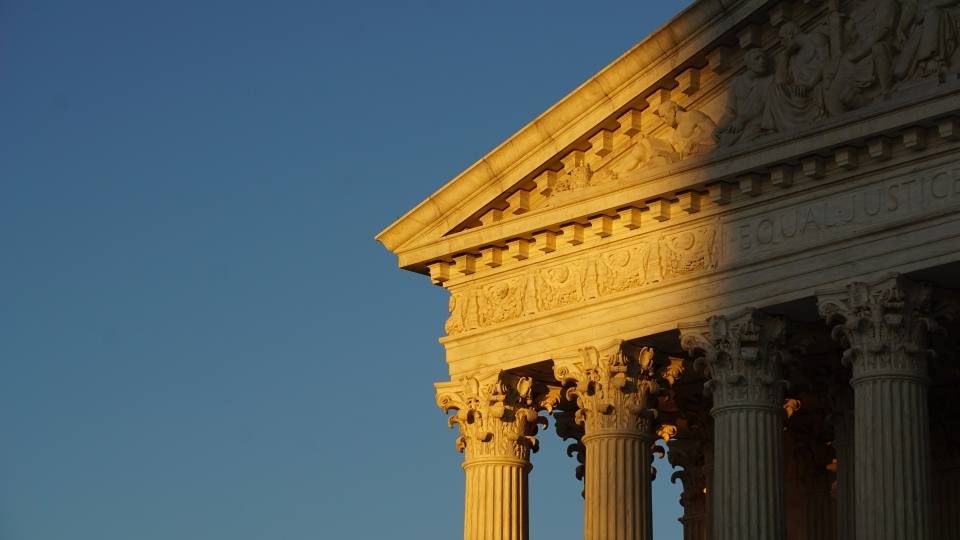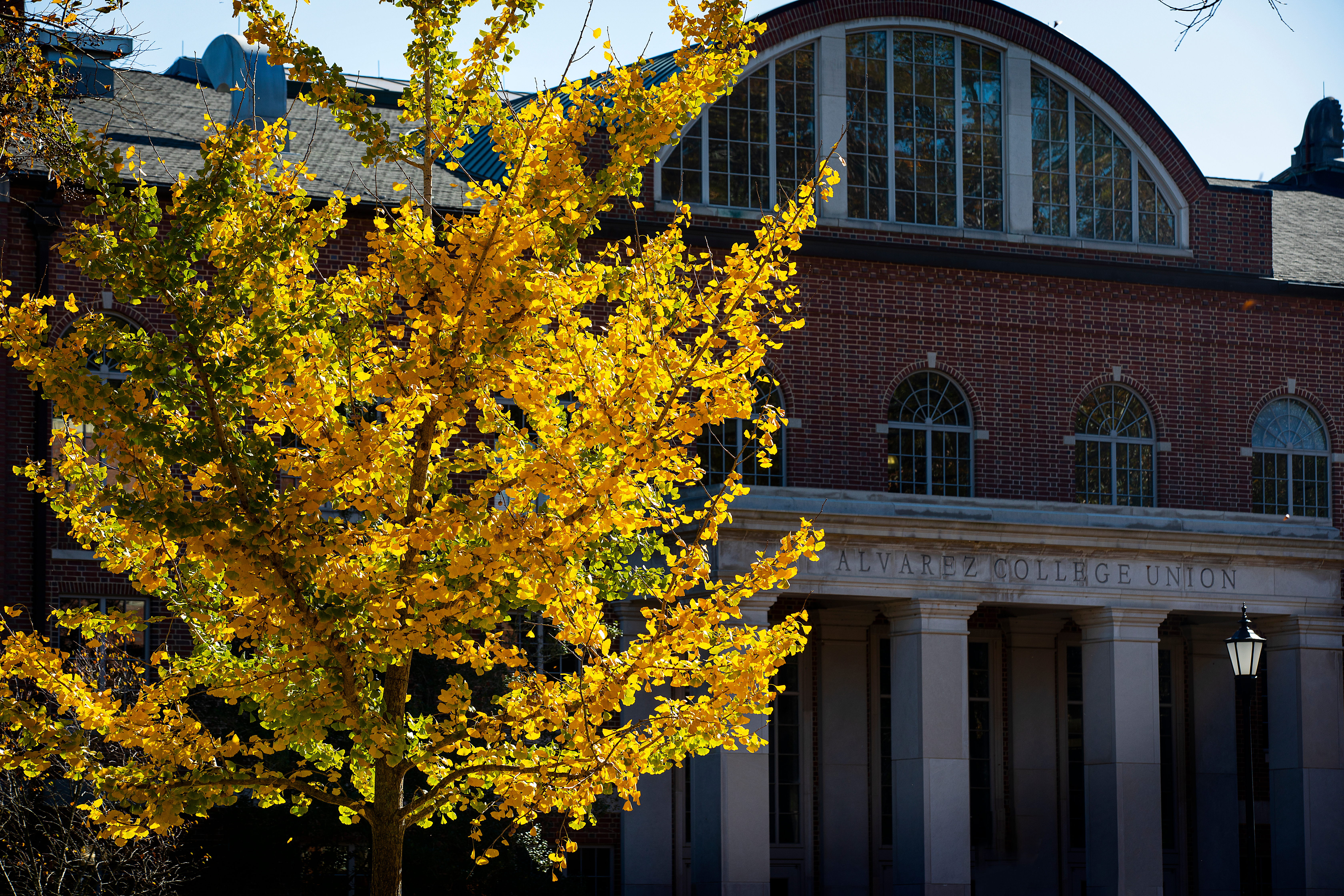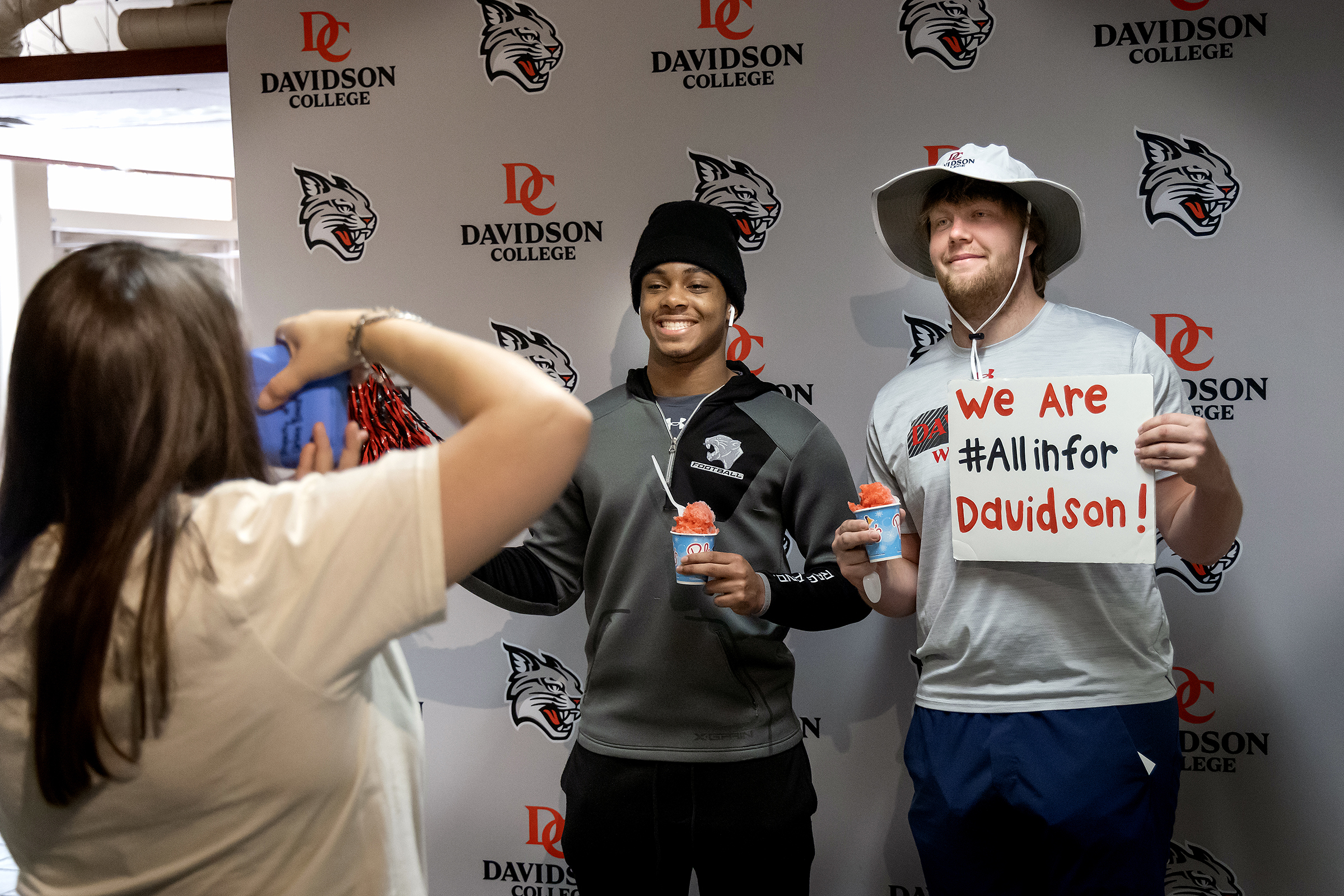Political Science Prof: 1960s Controversy Echoes Questions Around Justice Thomas
June 7, 2023
- Author
- Jay Pfeifer

U.S. Supreme Court Justice Clarence Thomas’s personal dealings have raised ethical questions, but a Davidson College political science professor says we’ve been here before.
Supreme Court Justice Clarence Thomas’s ties to billionaire Harlan Crow have pushed the ethics of the nation’s highest court into the headlines. The scrutiny sounds similar to criticism of another famous justice, on the other side of the political spectrum, in the late 1960s.
The unfavorable attention matters at any point in history because the court’s ability to function depends, in part, on whether the public believes it is legitimately fulfilling its role. The court is reaching the end of the current term and will release a series of high profile decisions on affirmative action in college admission, voting rights and rights for same sex couples and Native American communities.
A Gallup poll in 2022 found that public confidence in the U.S. Supreme Court hit an all-time low, with just 25 percent of U.S. adults saying they have "a great deal" or "quite a lot" of confidence in the court.
Andrew O’Geen, associate professor and chair of political science, studies the politics of the Supreme Court and says that it’s easy to overestimate justices’ ability to separate their professions and their personal lives.
“When we talk about the Supreme Court–or when the justices talk about what they do--we engage in what sometimes feels like a collective delusion that the justices are able to perform a superhuman compartmentalization of their personal beliefs and feelings when they decide cases,” O’Geen said. “The justices, as all people would, regularly fall short of this ideal.”
What makes that perception particularly challenging is that a disproportionate amount of the court’s power lies in our shared belief that it can fulfill its role as the third branch of government.
“Without formal enforcement powers, the court must rely on others to give its rulings authority,” he said. “The primary mechanism through which this occurs is the ongoing belief in the court’s legitimacy as an institution. If powerful and rich interests are seen as inappropriately influencing the decisions of the justices, it can call into question the fairness of the process itself and the insulating effect that the court’s legitimacy provides the justices is significantly reduced.”
O’Geen points to the controversy around Justice William O. Douglas, whose finances raised ethical questions and even the beginnings of an impeachment in the late 1960s.
What can we learn from the challenges Justice Douglas faced?
In ways that may parallel the situation with Justice Thomas, Douglas was a target of scorn for his ideological views and his political activity. He was seen by some as sympathetic to Communism because he temporarily ordered the halt of the executions of Julius and Ethel Rosenberg and because of his general affinity for left-leaning interpretations of the law.
Douglas was also connected financially (as a paid employee) to Albert Parvin and the Parvin Foundation. Parvin had been the owner of the Flamingo Hotel in Las Vegas, and some made the connection from Douglas to Parvin to organized crime.
But Douglas was famously stubborn. Unlike Justice Abe Fortas, who resigned in 1969 after receiving payment from a financier, Douglas chose to remain on the court. Gerald Ford, at the time the House minority leader, sought to have Douglas impeached. However the case never made it out of the House when it became clear that the evidence (and more importantly, the political will) was not sufficient to proceed.
Did the scrutiny around Douglas lead to any change to the ethics or conduct of SCOTUS justices?
Not directly. Federal courts adopted the Code of Judicial Conduct in 1973. However, while this code applies to lower federal court judges, it does not directly apply to the Supreme Court. Supreme Court justices are also subject to laws like the Ethics in Government Act that apply to all government officials. This law, enacted by Congress in 1978, was part of a suite of reforms that included both statutes and reforms in the executive branch that were a direct response to the Watergate scandal and its aftermath. However, as the case with Justice Thomas shows, there is ambiguity in these rules that leave open the possibility that some types of gifts are not covered. Even in the wake of these types of stories, there has been a traditional expectation that the Supreme Court could adequately police its own ethical standards.
Does enforcement of ethics and disclosure rules fall on the chief justice?
To some extent, yes. As head of the judicial conference, the chief justice is supposed to report anyone who they believe has willfully violated the rules. Also, the attorney general has the authority to enforce the rules, independent of the reporting of the chief justice. With lower court judges, where scrutiny might not be as strong, this decision may be an easier one. But the president and attorney general are likely to tread lightly when dealing with a sitting Supreme Court justice. Especially when the partisan/ideological dimension is in play, there is the strong possibility that any enforcement efforts will be construed as politically motivated.
Is there any way to tell if the scrutiny around Douglas affected public opinion about the Supreme Court?
That is a tough thing to pin down with any specificity. We do know that confidence in the Court has been pretty consistent going back to the mid 1970s, with about 40% of the public saying that they have a lot of confidence in the Court’s work. That number is currently at an all-time low. We can speculate about the causes of this, but it’s hard to ignore that the drop has come amidst a series of high-profile decisions that seem to be at odds with majoritarian sentiment in the country and the recent reporting about Justice Thomas, his wife and conservative activists like Leonard Leo and Harlan Crow.
Explore Political Science at Davidson
We provide our students with the analytic tools to become thoughtful, creative, and ethical leaders and problem-solvers. Students have access to a variety of experiential learning opportunities, including our popular Davidson in Washington summer program.



